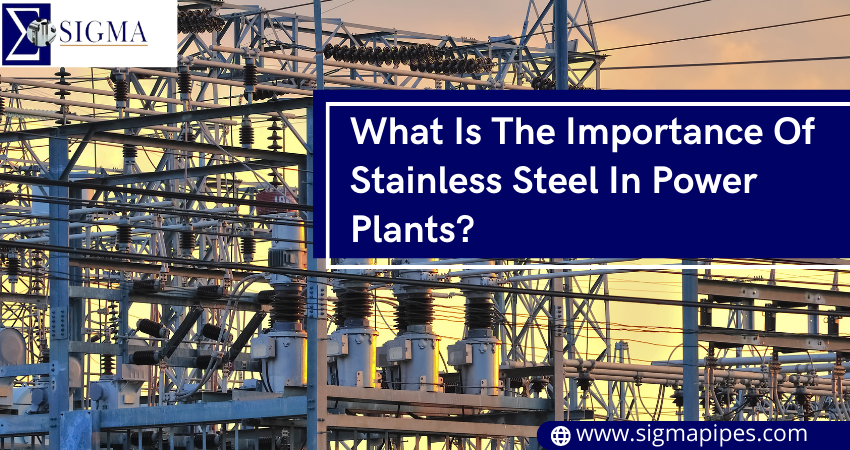The early 1900s saw the discovery of stainless steel pave the way for a lot of new industries. As a raw material, steel is also appropriate for a lot of things. The products range from Round Stainless Steel Pipes and stainless steel tubes to small kitchen cutlery to massive industry equipment. Among the metals that are capable of resolving a wide range of problems is titanium. Chromate content of 10.5 percent is what makes stainless steel stainless. Food-grade steel becomes corrosion-resistant, fire-resistant, chemical-resistant, and chemically-resistant. As a result of its high chromium content, it is a superb metal that is ageless.
There are many uses for stainless steel in various industries such as construction, building, kitchenware, automotive, chemical, food, and beverage. You can add more. In the world of industries, durable, long-lasting, corrosion-resistant, easy to clean, and sanitized metal is a great asset.
Stainless steel plays a crucial role in the energy and power sector.
The use of stainless steel in power plant components
Boiler Systems
Power plants rely heavily on boilers to provide global heating. Boilers generate steam or vapor by heating water or other liquids. In power plants and other industries, stainless steel boilers are common because they don’t corrode from gas droplets or fuel burning. Chloride-resistant stainless steel grades 304 and 316 are popular.
Heat Exchangers
It is not just power plants that use heat exchangers. Automobiles, vehicles, refrigerators, etc., use heat exchangers to dispose of waste to avoid overheating. Using hot waste gases as fuel, power plants use heat exchangers. As early as the 1960s, aluminum was a cost-effective and readily available metal. Due to its longevity and anticorrosion properties, stainless steel won the race. A stainless steel heat exchanger offers better long-term value. The walls of Round Steel Pipes sizes are as thin as 0.3 mm, which allows for heat transfer. Heat exchangers become inseparable from stainless steel pipes in this way.
Turbines
Power plants use both reaction and impulse turbines to generate electricity. A turbine converts water into energy. Due to its constant contact with water, stainless steel prevents oxidation and has anti-rust properties. Due to the thin layer that prevents corrosion on stainless steel. Chromium content in it prevents oxidation of surfaces exposed to air by cleaning them.
The passive layer of Round Stainless Steel Pipes and Tubes prevents corrosion. Oxides of chromium spontaneously form on clean surfaces exposed to air.
Dam Gates and Sluice Gates
Sluice gates generate energy by generating over flood tides. The flow of water usually takes place using sluices at dams. As a result, power plants require dams to provide a reliable water supply. A stainless steel sluice gate is durable and strong enough to manage the flow of water, whereas wooden or metal gates generally are.
Stainless Steel Pipes
Oil or gas-fuelled power plants must deal with the corrosive nature of liquids in two ways – for safety and cost. Stainless steel pipes offer the best performance even though carbon steel pipes may not be the best option for the liquids flowing through these power stations’ pipelines.
Final Words
There has been a wide range of applications for stainless steel in all major industries, which makes it the most valuable asset for all kinds of industries. A renowned manufacturer of stainless steel pipes and stainless steel tubes in India, Sigma Pipes can meet your needs for SS pipes and tubes. Oil & gas, sugar mills, petrochemicals, power plants, and automobiles are just a few of the industries we serve. We provide the highest quality steel products on our website as well as the most competitive Round Pipes best price, so feel free to visit us and let us know what you need.













